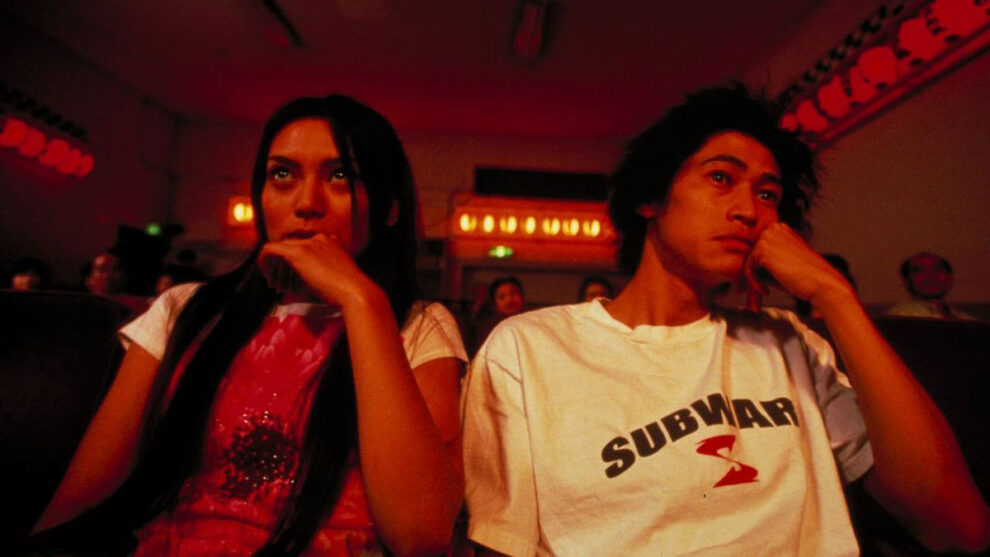Similar to other cultures, the Japanese one has its fair share of coming-of-age-stories, as they make up a majority of the books and movies coming out each year. However, with this high number, it is impossible to have some kind of oversight and thus discover those which truly stand out, especially since the themes, characters and aesthetics are very similar, with many Japanese productions also trying to mimic European arthouse-cinema as we have discussed here on AMP. In 2001, director Isao Yukisada successfully diverted from this formula with “Go”, which tells the story of a teenager trying to find his way in life, but also his identity within Japan and its trends towards conformity and obedience. The feature, which became Japan's entry for the Oscars the same year, may be a true (re-) discovery for many cinephiles and critics as its observations and treatment of the aforementioned topics is still quite unique within a cinematic landscape that has ironically also fallen prey to conformity, in order to please the festival crowd.
Buy This Title
on Terracotta
Being born between two cultures, Korean-Japanese Sugihara (Yosuke Kubozuka) always struggled to find his way. While his father Hideyoshi (Tsutomu Yamazki), a former professional boxer, makes him attend a North Korean school, he also goes through several issues concerning his Korean citizenship. Being still a formidable athlete, he teaches his son to become a fighter, not to be a boxer like himself, but to be able to defend himself against the outside world which is out to get him, which, as Sugihara finds out, is a constant in his life. However, unable to obey the rules at his North Korean school and after arguments with his teachers (some of them quite physical), he chooses to attend a Japanese school.
Throughout the first months at the new school, his attempt to embrace Japanese culture is not quite the success he had hoped for. Even though he manages to date a co-student, Sakurai (Ko Shibasaki), and beat several of the school's bullies, earning him quite the reputation as a fighter, he still feels there is something in the way of being fully accepted. After a tragic incident involving one of his only peers, he decides it is time to make up his mind of what he wants to be in life, and also which culture he wants to belong to. Or whether he should take the much more difficult route of staying in between and not going with either of them.
Although all coming-of-age dramas deal with the idea of identity to some extent, there is something quite special with the way Yukisada handles it. Similar to many of his peers, the protagonist struggles with the two identities at his disposal,:while he is mostly named Sugihara, referring to the Japanese culture, there is also his Korean birth name, Jong-il, which he rarely uses in order to not stand out. Throughout the story, as he finds himself trying his luck with each culture, we are confronted with a much more profound observation of culture, how it defines us and shapes out destinies. Considering the feature opens with a quote from “Romeo and Juliet” about the nature of name and how our upbringing defines borders around us, Yukisada emphasises how our cultural identity poses said border, but also a chance to find something new, which is precisely what Sugihara/ Jong-Il attempts.
In a way, there is a love story in “Go”, which is what has been promised to us from the narrator. However, the reference to Shakespeare's play is misleading, as the story of affection revolves around the protagonist “falling in love” or rather accepting himself, his positives as well as his negatives, which of course involves his struggles in finding a home. Yosuke Kubozuka gives a great performance as Sugihara/ Jong-Il, not making him a character who is instantly likeable, but someone the viewer understands, while not necessarily supporting all of his decisions and actions. At the same time, Tsutomu Yamazaki as Hiseyoshi also stands out, as a father-figure equally at odds with the idea of culture and ideology, with his way of dealing with the issues easily resulting in some of the most comedic and satirical scenes of the feature.
In conclusion, “Go” is a coming-of-age drama about identity and the struggles to find one's way in life. While Isao Yukisada's feature may not divert from the genre's formula that much on paper, its treatment of these concepts, its characters and his approach in terms of storytelling is what makes “Go” stand out among the multitude of similar stories, and certainly a movie to (re-)discover for cinephiles.

















